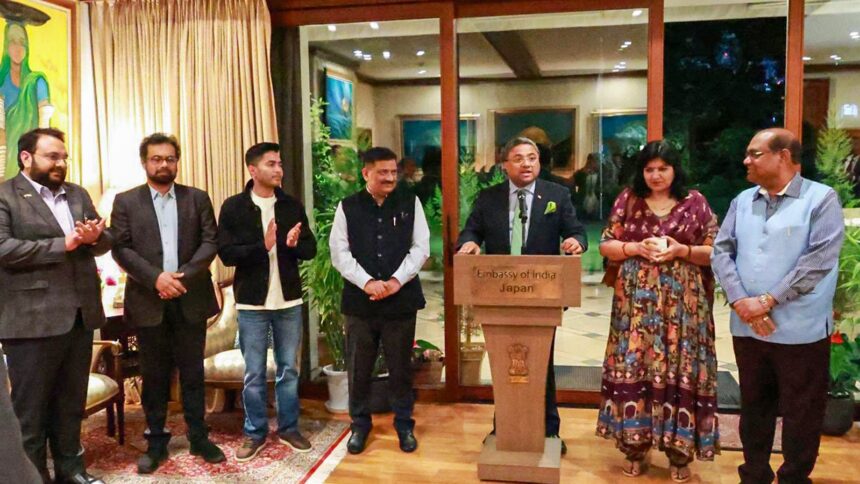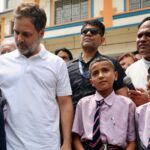The sent to Japan to explain India’s position on Operation Sindoor has told top officials that the ceasefire between India and Pakistan took place as a result of a request from Pakistan’s director general of military operations (DGMO) for cessation of hostilities, and not because of mediation by the US.
“When asked by them, we said that it was the Pakistan DGMO’s call for a ceasefire that made us agree to it. Many countries talk to nations involved in conflict, we have also talked to both Russia and Ukraine. However, the ceasefire decision was bilateral, after Pakistan asked for it,” the delegation head Sanjay Jha told .
The delegation also told the Japanese officials that Pakistan had for decades been a sponsor of terror in India and elsewhere, that India had now created a new normal where the handlers of terrorists would also be hit in the event of a terror strike, and that the Indus Water Treaty would stay in abeyance till Pakistan keeps sponsoring terror.
The delegation, led by Jha of the (United), sent out calibrated optics of peace and revolution by beginning its Japan trip by paying tributes to a statue of Mahatma Gandhi at Edogawa in Tokyo and ending it by paying tributes to the cemetery of Indian revolutionary freedom fighter Rash Behari Bose, whose birth anniversary is on May 25, at Tama, Tokyo.
The sense among the delegates is that the all-party delegation sent out the message that the country is united on Operation Sindoor. “Non-violence is our choice, not our compulsion. If terror challenges peace, India will respond with unity and resolve,” Jha said.
Winding up its Japan tour, the delegation, also comprising former Union minister and Congress leader Salman Khurshid, Trinamool Congress leader Abhishek Banerjee, CPI (M)’s John Brittas, alongside the ’s Brij Lal, Pradan Baruah and Aparajita Sarangi, now heads to Seoul in South Korea, following which it will also visit Singapore, Indonesia and Malaysia.
Jha said that the delegates made it clear that blood and water could not flow together, adding that the Indus Water Treaty would remain suspended till Pakistan continues to aid and abet terrorism. “We told them that the Preamble of the treaty says it is part of friendship and cooperation between the two countries. If there is neither friendship nor cooperation, where is the treaty?” Jha told The Indian Express. He said that the delegates informed the Japanese officials that India had been telling Pakistan that the treaty, under which 80 per cent of the water goes to Pakistan, needed revision in view of the changed climatic conditions, but the neighbouring country had not given any positive response.
“We met Japanese Foreign Minister Takeshi Iwaya, former Prime Minister Yoshihide Suga, Speaker of the House of Representatives Fukushiro Nukaga, National Security Committee Chairman Takashi Endo, leaders of political parties, members of the Japan-India Parliamentary Friendship League, think tanks, MPs, members of the Indian diaspora, and ambassadors of various countries in Japan,” Jha told The Indian Express.
Jha said that the delegation conveyed to the Japanese officials that the Pahalgam attack that killed 26 people, mostly tourists, was sponsored by the Pakistan army and government. “We brought to their attention the hate speech of General [Asim] Munir days before the attack. We told them that in the terror attack on the Taj Hotel in , in which two Japanese citizens were also killed, Pakistan was involved. We told them about Mumbai attack terrorist Ajmal Kasab, who was a Pakistani, and also reiterated that Osama bin Laden was found and killed in Pakistan,” Jha said. “In all meetings, the Japanese have given support for the fight against terrorism. They condemned terror in all its forms.”
Jha said that the delegation conveyed to the Japanese officials that India had created a “new normal” so far as terror is concerned. “The Prime Minister has said that we have had enough. If terrorists are being trained and handled from Pakistan, we will hit the handlers too. India has the right to protect its citizens,” he said, adding that nuclear blackmail cannot be used to continue abetting terrorists.
“They understood the precision of our strikes and that our air force is very professional and capable. We showed them that we began only by hitting terror bases, and hit Pakistan air bases only when it attacked India,” he said.
Vikas has taught as a full-time faculty member at Asian College of Journalism, Chennai; Symbiosis International University, Pune; Jio Institute, Navi Mumbai; and as a guest professor at Indian Institute of Mass Communication, New Delhi.
Vikas has authored a book, Contesting Nationalisms: Hinduism, Secularism and Untouchability in Colonial Punjab (Primus, 2018), which has been widely reviewed by top academic journals and leading newspapers.
He did his PhD, M Phil and MA from JNU, New Delhi, was Student of the Year (2005-06) at ACJ and gold medalist from University Rajasthan College in Jaipur in graduation. He has been invited to top academic institutions like JNU, St Stephen’s College, Delhi, and IIT Delhi as a guest speaker/panellist.








